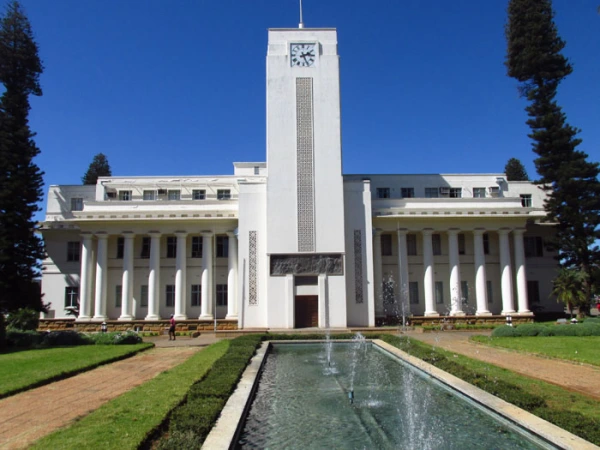Bulawayo City Council (BCC) is encouraging residents to utilise their WhatsApp service to submit monthly meter readings to address inflated water bills.
The call comes after widespread resident complaints regarding excessive water charges. While acknowledging these concerns, the BCC has highlighted several factors contributing to the problem.
During a residents’ meeting in Ward 12, Njube, organised by the Bulawayo Progressive Residents Association (BPRA), BCC Accounting Manager, Euther Siziba, explained the underlying causes of high bills.
One primary reason is unpaid balances carried forward from previous months. Siziba clarified a misconception: not everyone has high bills, but individual complaints can create a city-wide perception of the issue.
“The most common complaint is that the bills are too high,” Siziba said. “It’s not everyone who receives high bills, but currently in Bulawayo, if one person complains about a high bill, the whole city claims they have a high bill. The number one reason why we are receiving high bills is that you are not paying in full. You might have a current month charge of US$20, but there’s a balance brought forward. The amount due and payable becomes US$100 or US$200. You then become part of those saying the council is sending high bills, but that’s not it. You’re not paying your current bill, and you have previous balances brought forward.”
Economic hardship can also lead to residents underpaying their monthly bills, resulting in accumulating debt and inflated bills later.
“Others have high bills because their monthly charge is US$20, but due to economic challenges, they only pay US$5 or US$10,” Siziba explained. “Every month they leave a debt, and their bill accumulates to US$60-US$80. They then say they have a high bill, but that’s not correct. Your bill is accurate; it’s just that you’re consistently paying less than the expected amount.”
Siziba identified unnoticed water leaks from taps and toilets as another common cause of high bills.
“Some of you have high bills due to leaking taps and toilets,” he said. “For example, when you flush a toilet and the rubber doesn’t seal properly, the meter will continuously read water flow, resulting in a high bill at the end of the month. Let’s look for plumbers to fix these leaks. In some areas, we’ve seen taps tied with string to stop dripping, but water continues to waste. Similarly, some taps are tied with wires but still leak.”
He added that careless water usage can also contribute to high bills.
“Some residents waste water,” Siziba said. “For instance, children washing dishes with a running tap will cause the meter to register that water usage. The meter faithfully counts all the water used. Some residents even bathe in full bathtubs, using small containers to avoid water charges. However, when there is water, they waste it. Residents who fill Jojo Tanks and then spill the water when city water returns, claiming the stored water is no longer clean, also end up with high bills because the meter reads all that water usage.”
Siziba acknowledged that irregular meter readings can lead to billing discrepancies.
“For those with functioning meters, there may be months when we don’t read them,” he said. “For example, during the Covid-19 pandemic in 2019-2020, meter readings were suspended for almost two years. When readings resume, the meter might show usage that differs from what you were previously charged. This can affect your bill as we try to account for all the accumulated usage in one month. However, we will work with you to spread out the cost so you can continue paying the same amount you were previously paying. We rectify these types of billing errors.”
To improve accuracy and reduce estimated billing, Siziba urged residents to submit their meter readings every month to the local authority.
“We are urging residents to send us their meter readings on our WhatsApp number 0713 347 319,” he said. “Every month, send your reading along with your account number or house number. Consistent use of this system will reduce the need to send meter readers, eliminate estimations, and ensure you are billed based on actual water usage.”

